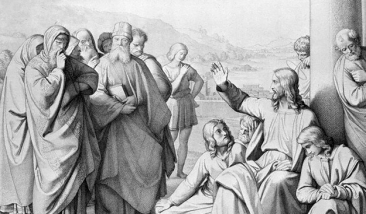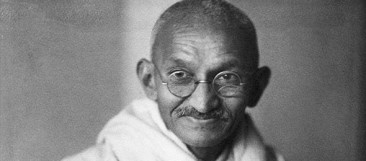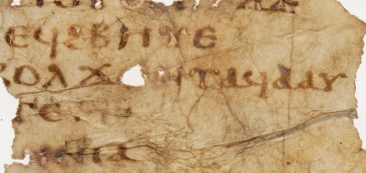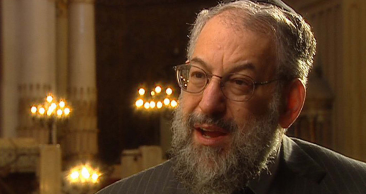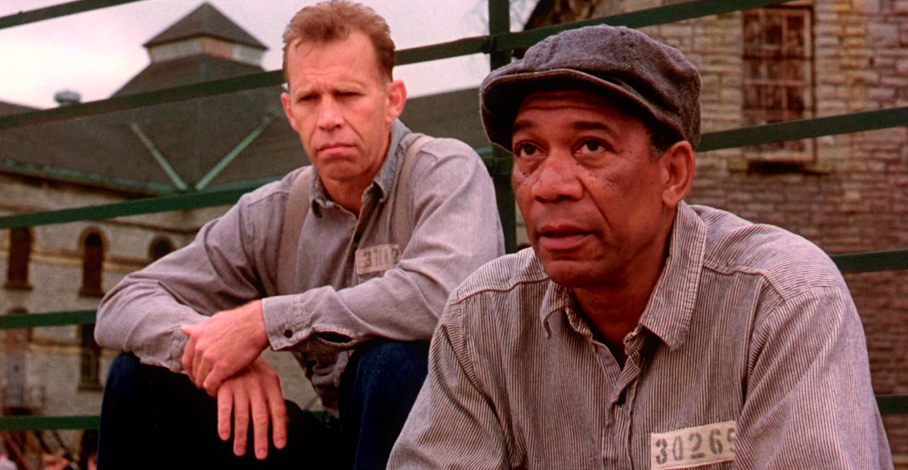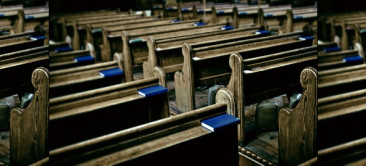“When Jesus had finished speaking, a Pharisee invited him to eat with him; so he went in and reclined at the table. But the Pharisee, noticing that Jesus did not first wash before the meal, was surprised. Then the Lord said to him, ‘Now then, you Pharisees clean the outside of the cup and dish, but inside you are full of greed and wickedness. You foolish people! Did not the one who made the outside make the inside also? But give what is inside the dish to those in need, and everything will be clean for you.
Author Archives: Jimmy Doyle
A Different Category
A scene rom the movie Gandhi:
Prosecutor: [reading from Gandhi’s material] “‘…Non-cooperation has one aim: the overthrow of the [British] government. Sedition must become our creed. We must give no quarter nor can we expect any.’ Do you deny writing it?”
Gandhi: “Not at all. And I will save the courts time by stating under oath that to this day I believe that non-cooperation with evil is a duty, and that I believe British rule of India is evil.”
Prosecutor: “The prosecution rests, my lord.”
Judge: “I presume you are conducting your own defense, Mr. Gandhi?”
Gandhi: “I have no defense, my lord. I am guilty as charged. And if you truly believe in the system of law which you administer in our country, then you must inflict on me the severest penalty possible.”
[The judge hesitates…seemingly overwhelmed and awed by Gandhi’s words.]
Judge: “It is impossible for me to ignore that you are in a different category from any person I have tried, or are likely to try. Nevertheless, I sentence you to six years in prison [murmuring and shouting among those gathered in the court]…But if our Majesty’s government should, at some later date, see fit to reduce the term, no one will be better pleased than I.”
Theological Discussions at the Doyle House
I came across this old post from 2008, and I enjoyed remembering it so much that I had to repost it. (Please note that my children are older, but the conversations haven’t necessarily changed that much.)
The following is from 2008:
So I walk into the living room and overhear the end of an apparently deep theological discussion among my daughters.
Hailey (9): “. . . God can do anything.”
Abby (5, thinks for a few seconds): “God can swim?”
Hailey: “Anything, Abby.”
Abby: “Even make cards?”
Hailey: “God can do anything.”
Newly Discovered Coptic Fragment of the Gospel of John
On his blog Brice C. Jones has written about his discovery of an unpublished Sahidic Coptic fragment of John and his upcoming published presentation of the find in New Testament Studies next spring (April 2014). According to his post, this fragment is the earliest known all Coptic manuscript containing commentary on the Gospel text delineated by the heading “hermeneia” (“interpretation” or “explanation”). He does not mention the possible dating of the fragment, however. According to Jones, other Coptic manuscripts containing hermeneia segments are bilingual, with a mixture of Coptic and Greek.
Congrats on a great find!
Free Resources On Second Temple and Rabbinic Judaism
Well known scholar Dr. Lawrence Schiffman has made two brief works on early Judaism available for free on his website. I have not read these particular essays (yet), but I have read some of his published material and have listened to entire semesters worth of Schiffman’s lectures on topics such as Second Temple Judaism, the Hebrew Bible, and the Dead Sea Scrolls. I highly encourage anyone who is interested in early Judaism or the contextual background of the New Testament to take advantage of this opportunity to download these resources. Continue reading
Institutionalized
“These walls are funny. First you hate ’em, then you get used to ’em. Enough time passes, you get so you depend on them. That’s institutionalized.”
—Morgan Freeman’s character “Red” in The Shawshank Redemption
I Don’t Go To Church Anymore (Again)
Thirteen years ago Amy and I made the decision to resign from paid ministry in the local church. During the previous decade, I had worked at three congregations (one for only a year, another for eight, and the last for a little over a year). One was a small family congregation, the second was a growing suburban congregation, and the last was a large “mega-church”.
The decision to leave professional ministry wasn’t easy. Since giving my life to Christ, I had always felt a “call to ministry”. I loved the relational work of sharing lives, learning together, and working out what it means to follow Jesus with other people. I, like most who feel strongly about such a call, assumed that following it meant paid ministry in a church, as a missionary, or in a para-church organization. However, I now felt for the first time that God was calling me out of professional ministry. I wasn’t sure what it meant, or what I would do, but I was certain that resigning was what I was supposed to do. So, in a huge leap of faith, without another job, and in major change in my previously assumed direction in life, I resigned.
The Crowd Is Untruth
There is a view of life which holds that where the crowd is, the truth is also, that it is a need in truth itself, that it must have the crowd on its side. There is another view of life; which holds that wherever the crowd is, there is untruth…
—Søren Kierkegaard
“The Crowd Is Untruth”
(available here in it’s entirety)
Kierkegaard on Our Contradictions
“In the splendid cathedral the Honorable Right Reverend Geheime-General-Ober-Hof-Praedikant [Private Chief Royal Chaplain] comes forward, the chosen favorite of the elite world; he comes forward before a chosen circle of the chosen ones and, deeply moved, preaches on the text he has himself chosen, ‘God has chosen the lowly and the despised in the world’—and there is no one who laughs.”
—Søren Kierkegaard
The Humor of Kierkegaard: An Anthology, 148
John Wesley on Wealth
[Wealth] is an excellent gift of God, answering the noblest ends. In the hands of his children it is food for the hungry, drink for the thirsty, raiment for the naked. It gives to the traveler and the stranger where to lay his head. By it we may supply the place of an husband to the widow, and of a father to the fatherless; We may be a defense for the oppressed, a means of health to the sick, of ease to them that are in pain. It may be as eyes to the blind, as feet to the lame; yea, a lifter up from the gates of death.”
—John Wesley
Sermon 50, The Use of Money
For those of you who really know me…
You know that I have a difficult time inviting people to things that are of an “official” nature related to myself. Somewhere along the way I developed this knee-jerk, over-response to anything that might appear less than genuine. Sometimes, as a church worker, I’ve wondered if in the back of people’s heads there’s this idea of that somehow an invitation by a church worker comes across as “working” my relationships for the benefit of the institution or having a mixed agenda (the success of the program vs. really caring for people).
